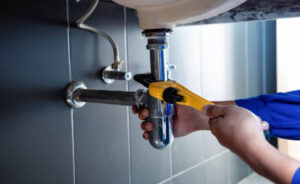Hot Water Heater Problems: Handling Unexpected
Usually taken for granted until a hot water heater issue causes us to shiver in the shower, hot water is a crucial resource in our homes. Although nobody wants to deal with this, hot water heater emergency do happen to everybody. So let’s look at the usual causes of these errors and talk on how to solve them.

Among the most often occurring causes of hot water heater breakdown is sediment accumulation. Over time, minerals and waste could accumulate at the bottom of the tank, therefore lowering its efficiency and causing tank overheating. Often cleaning your hot water heater will assist to prevent this issue. The simple maintenance task consists in emptying the tank to remove any silt collection, so preserving the smooth running of your equipment.
An other sometimes guilty offender is a broken thermostat. Through temperature regulation, the thermostat ensures the water inside the tank remains within a comfortable range. The thermostat may need servicing should you discover that your water is consistently either excessively hot or too chilly. Usually the answer is merely changing or tweaking the thermostat to get your hot water back to appropriate temperature.
Leaks are also another main cause of hot water heater problems. From a ruptured pipe or a defective pressure release valve letting water seep from the tank, water damage and possible safety hazards occur. Any leaks have to be fixed immediately before they get worse. Regular hot water heater checks for symptoms of moisture or pooled water will help you locate leaks early on and save later costly repairs.
Sometimes the heating element itself proves to be the issue. The effectiveness of your hot water heater may change depending on heating element corrosion or wear-out over time. If your water temperature is dropping or if heating times are rising steadily, it could be time to replace the heating element. Fortunately, this is a really simple task that will enable your hot water heater to shine once more.
Sometimes a hot water heater problem calls for professional intervention. For instance, gas leaks should never be taken lightly since they can be really deadly. If you smell gas near your hot water heater or observe any other leak indicators, act immediately. Turn off the gas supply using the shut-off valve; then, call a licensed plumber to correctly address the issue.
Water pressure problems could contribute to hot water heater breakdowns. Too much pressure over time may weaken or break the tank. Installing a pressure lowering valve helps to prevent this issue by regulating the water pressure entering your house. Even if you now have a professional plumber in place and still deal with pressure-related problems, it is essential to have them review the case.
learning these common reasons of hot water heater failures and learning how to solve them will enable you to better prepare yourself for any unplanned issues that might arise. Key to ensuring your hot water heater performs as it should be regular maintenance, fast repairs, and expert advice when needed.
 Hot Water Heater Emergency: Stopping Home Disaster
Hot Water Heater Emergency: Stopping Home Disaster
Particularly in the colder winter, everyone has found great annoyance while entering a cold shower. It’s not only a nuisance; it’s an emergency with hot water heaters nobody wants to deal with. Fortunately, there are preventative steps you can take to avoid such disasters and guarantee a continuous supply of warm water in your house. Let’s start right now and discover the secrets to avoid hot water heater crises.
Frequent Maintenance: The Secret to Preventing Problems
About hot water heaters, regular maintenance is quite important. A little effort in this field will assist to significantly lower emergencies. Planned frequent inspections enable you to find any potential issues before they start to cause major disasters.
Your hot water heater should at least once a year be checked by a skilled plumber. They might assess its condition, clear any silt build-up, check the pressure releasing valve, and ensure that every connection is tight. Regular maintenance not only extends the lifetime of your hot water heater but also aids in the identification and resolution of little problems before they become costly emergencies.
Block leakage.
One of the most regularly occurring hot water heater issues is leaks. It could start as a small drip but quickly becomes a flood that seriously ruins your residence. Following simple rules will help one to prevent such a disaster.
Check the T&P valve, the temperature and pressure relief valve, first on schedule. This basic safety gear prevents too much pressure from accumulating and from the tank overheating. Just raise the lever to check if it is running as it ought. One should first hear a small burst of water then see it running into the overflow pipe. Whether there is constant flow or none at all, it is time to replace the valve.
Consider also laying a drain pan under your hot water heater. This will identify any little leaks and save water from harming your surroundings and floors. Check the drain pan often and quickly address any leaking signals.
Keeping an eye on pressure and temperature
Correct temperature and pressure adjustment can help you to ensure efficiency and safety from your hot water heater. Apart from increasing the risk of burning, a too high thermostat on your heater stresses the system too much. On the other hand, reducing it too much will not provide enough hot water for your needs.
Usually, the advised temperature is around 120 degrees Fahrenheit (48 degrees Celsius). For typical household use, this is hot enough even if it reduces the chance of accidental burns. Remember to insulate your hot water pipes; this helps to retain the water temperature and save electricity.
List the Indices of Problems.
Most importantly, one should be proactive and find early warning signs of prospective hot water heater problems. Look out for these indicators:
Should rust-colored water show up from your hot water taps, internal tank degradation may be suggested. If leaky or even explosive behavior is more likely, replace an old or decreasing tank.

Odd sounds like rumbling or banging could indicate too much silt developing in the tank. This affects not just efficiency but also could lead to system breakdown at last. Annually tank flushing is one approach to assist prevent this.
Should your hot water supply change or fall short of the desired temperature, this could point to a broken heating element or thermostat. Quick attention to this will help to avoid future issues.
Water smells: Development of tank bacteria may be indicated by a bad-smelling water. By cleaning and draining the tank, possible health hazards are stopped and the smell is eliminated.

